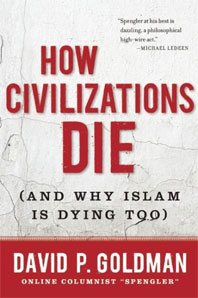The Mature Worshipper
“What if your gospel-preaching pastor is not as good as one of the great orators of our day? Is it time to sell the house, pack up the family, and change churches? No, I don’t think so. But what should you do?”
“What if your gospel-preaching pastor is not as good as one of the great orators of our day? Is it time to sell the house, pack up the family, and change churches? No, I don’t think so. But what should you do?”
Kerry Lewis recently posted this quote from George Grant on facebook:
There is a fundamental principle of dominion in the Bible:
dominion through service. This principle is understood well by the
modern welfare State. The politicians and planners recognize that
the agency that supplies charity in the name of the people will
gain the allegiance of the people. So, they “serve.” And so they
gain dominion…
 Tinpot Gods and Tinpot Men
Tinpot Gods and Tinpot Men“Idolatry is the Bible Matrix rendered impotent.”
You get out of life only what you put in, or so the saying goes. According to the Bible Matrix, you are supposed to get out more than you put in.
The single grain of wheat that dies is supposed to bring an abundant harvest. A life is given to God in the faith that He will take what is given and turn it into an increase. This is also found in the Covenant pattern: “Who’s the boss?; who’s His representative?; what do I have to do?; what do I get?; and, what’s next? Obedience brings plunder; disobedience brings plagues. [1]
 Having never been much interested in understanding Islam, it has been helpful to read David P. Goldman’s take on it. He is Jewish, (his glowing comments concerning modern Israel are a dead giveaway), but he is surprisingly objective concerning Christianity and Islam.
Having never been much interested in understanding Islam, it has been helpful to read David P. Goldman’s take on it. He is Jewish, (his glowing comments concerning modern Israel are a dead giveaway), but he is surprisingly objective concerning Christianity and Islam.
In the more circumspect of his recent books, he observes that the decisive difference between Judeo-Christianity and Islam cannot be found by arguing about the amount of violence in their respective histories. Their disparate characters are exposed somewhere closer to home:
 The Closing of the Muslim Womb
The Closing of the Muslim Womb“Population decline is the elephant in the world’s living room. As a matter of arithmetic, we know that the social life of most developed countries will break down within two generations. Two out of three Italians and three of four Japanese will be elderly dependents by 2050. If present fertility rates hold, the number of Germans will fall by 98 percent over the next two centuries. No pension and health care system can support such an inverted population pyramid. Nor is the problem limited to the industrial nations. Fertility is falling at even faster rates—indeed, at rates never before registered anywhere—in the Muslim world. The world’s population will fall by as much as a fifth between the middle and the end of the twenty-first century, by far the worst decline in human history.” [1]
So writes David P. Goldman in the introduction to his recent book, How Civilisations Die (and Why Islam is Dying Too).
 “The apocalyptists said, The world is coming to an end: Give up! The Biblical prophets said, The world is coming to a beginning: Get to work!”
“The apocalyptists said, The world is coming to an end: Give up! The Biblical prophets said, The world is coming to a beginning: Get to work!”Is it only me that has to restrain himself from violence when someone refers to the Revelation as “Apocalyptic”? I guess using a long word derived from Greek is a handy way of disguising the fact that you have little idea of what’s actually going on in the book.
 or A Nation of Nathans
or A Nation of NathansJeremy Myers has some words to say about Gregory Boyd’s and Walter Wink’s view that political power necessarily corrupts, even demonizes, the Church:
Is There Such A Thing As A Just War?
The “Just War” theory was originally developed by Augustine to defend the Empire’s actions of arresting and killing the Donatists, with whom Augustine was having a theological disagreement. He argued that in certain situations, a war is not wrong if it furthers the cause of Christ and advances the Kingdom of God on earth.
I’m banging the drum again. Under the title Constant Conversion, Doug Wilson writes:
The true Christian life is a life of true conversion. The Latin is the word for turning around, turning from one direction to go in another.
 Kerry Lewis shared an interesting article relating the difference between the final events on the Titanic and the version portrayed in movies.
Kerry Lewis shared an interesting article relating the difference between the final events on the Titanic and the version portrayed in movies.
“Men of power and prestige sacrificed their lives for women and children of the lower class, many of whom were indentured servants, day laborers, and domestic workers. On this flotilla of self-absorption, self-sacrifice became a prevailing virtue during a crisis moment, and the powerful chose death that the powerless might receive life.”
The era of such brave sacrifice is gone, along with the Christian worldview that sustained it. Progressives accuse conservatives of nostalgia for a culture that is past, a time we cannot recreate. They are half right. It is gone forever, but the future (or “eternal utopian present”) imagined by progressives is unsustainable, if not downright destructive. We agree on the death of the old culture, but have very different ideas about the future.
Presbyterians and Baptists have a long history of working together. As is God’s way, any new endeavour must take the past into account but not be bound by it. This is a guest post by my friend Matt Carpenter.
The questions surrounding the origins and necessity of denominations have been discussed at great length and I don’t intend on bringing them up here. But it doesn’t mean we have a license to continue without giving it another thought. This isn’t another call for lip-quivering ecumenism. Fellow soldiers in God’s army can learn a lot from one another and the two groups I currently have in mind are Baptists and Presbyterians. Traditionally they have shared a lot in common.